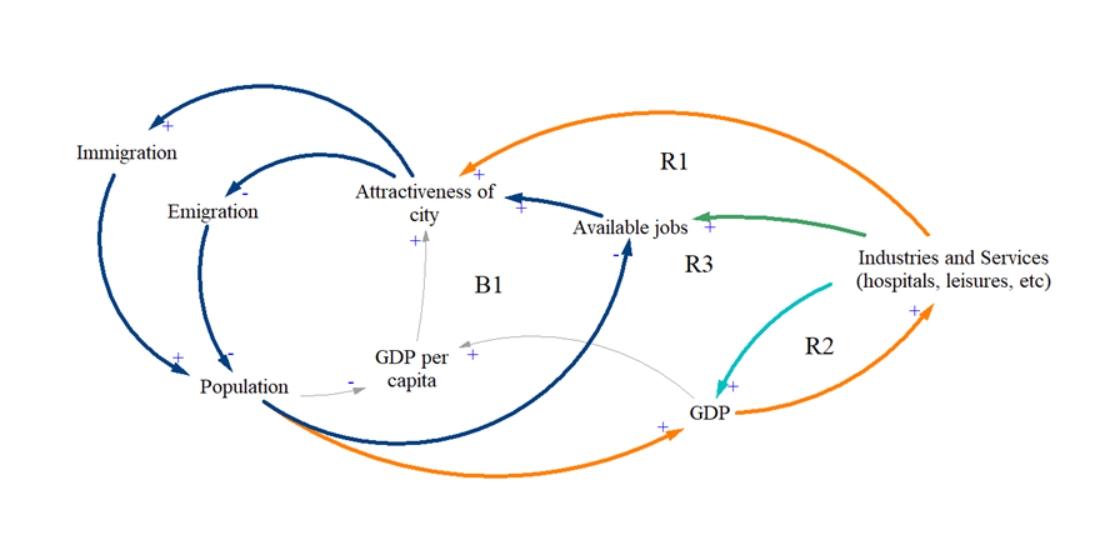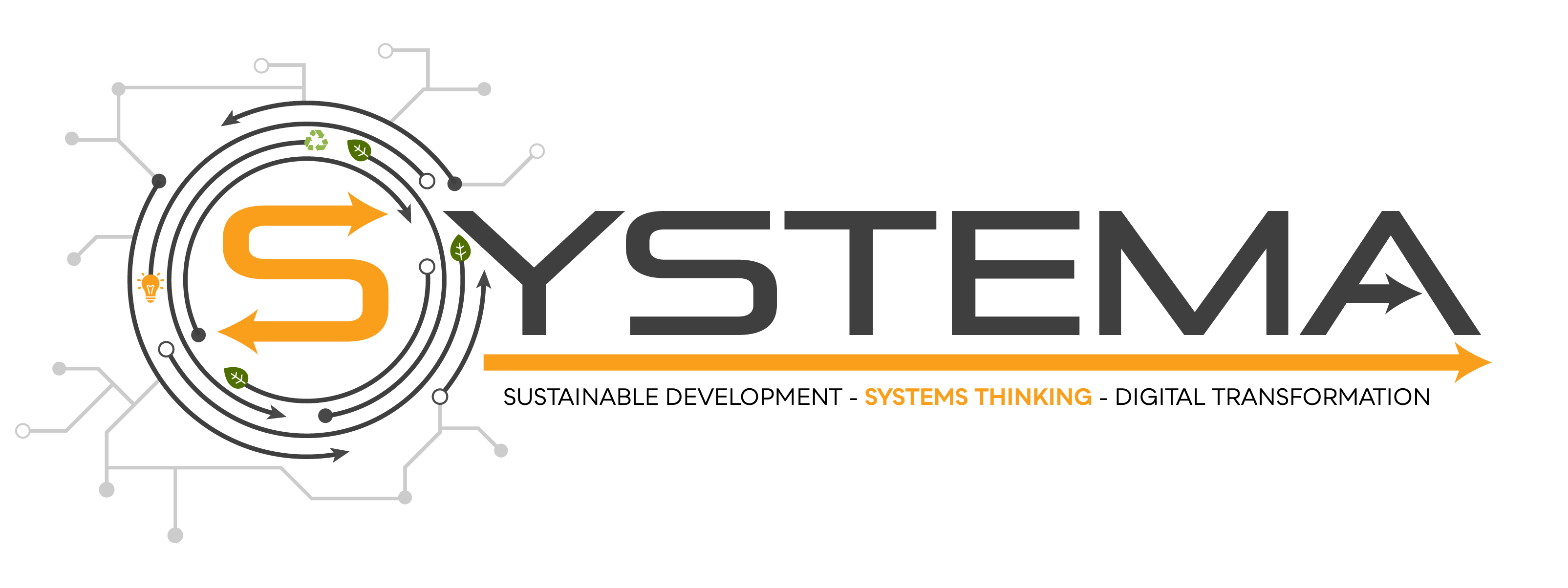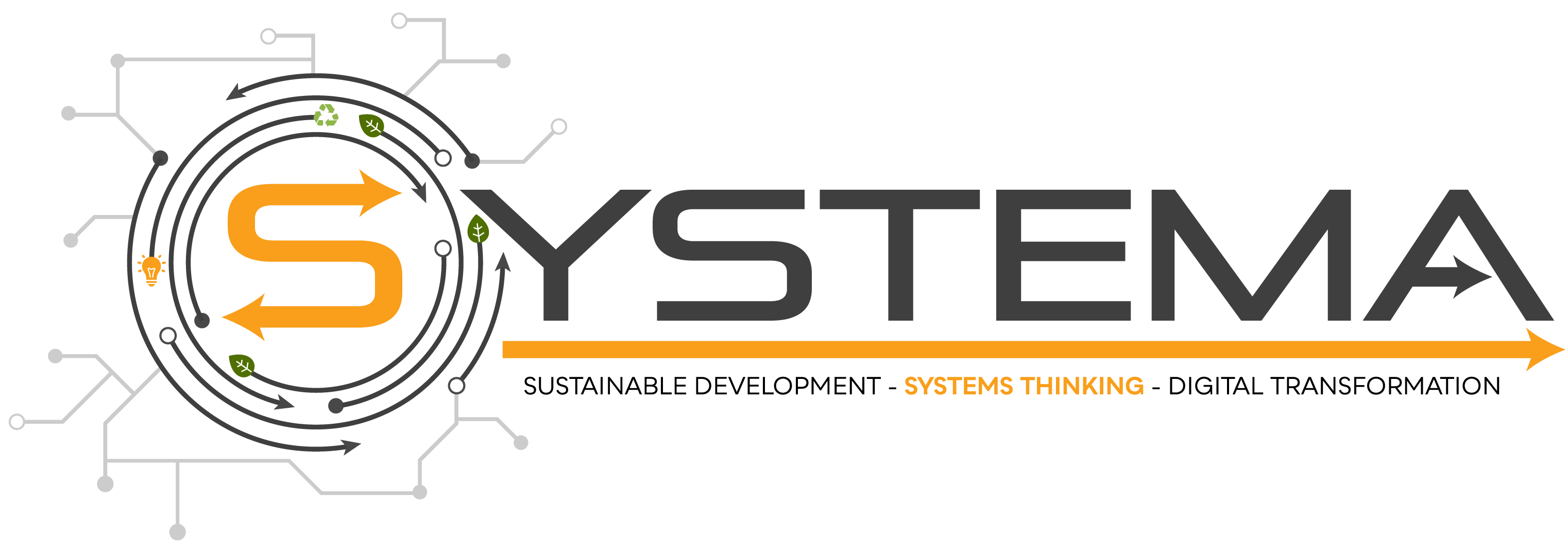Systems Thinking course
The power of Systems Thinking has been recently also acknowledged by the OECD.; in one of their latest reports, they have identified the need to use this paradigm if we are tosuccessfully solve the challenges of the 21st century (see “SYSTEMIC THINKING FOR POLICY MAKING – THE POTENTIAL OF SYSTEMS ANALYSIS FOR ADDRESSINGGLOBAL POLICY CHALLENGES IN THE 21st CENTURY, OECD, SG/NAEC(2019)4”). However, OECD is not alone in recognizing the advantages of SystemsThinking as a skill that could assist in solving problems.


The World Bank has also been promoting this methodology as an indispensable tool for education, while using it forinvestigating policies on education investments around the world. Finally, UNESCO has established an online course
(MOOC) in which Systems Thinking is being taught as a tool tounderstand ecosystems and find viable solutions to their problems.
Consequently, the objective of the project will be to prepare and train in Systems Thinking the next generation of people that will become the trainers of tomorrow and that will beincreasingly needed in public and private organizations
across Europe.
Systems Thinking has become a key competence and can be considered as a way of thinking aimed at solving complex problems related to real-world uncertainty. It starts from thebasic principle that the world is a system of highly interconnected natural, technical and social entities, hierarchically organized to produce behaviors observable by stakeholders. Inthis sense, Systems Thinking is a tool with which it is possible to describe a system as a whole (in other words, by explicitly addressing the various interdependencies that are acting ina system and its non-linearities), highlighting its dynamic nature and the interactions that occur among the elements of the system and avoiding any simplification and/or linearization(linear thinking has led decision makers to take linear decisions in a deeply non-linear world, hence producing huge disasters).


This Systemic Frame of mind is based on the following fundamental notions:
i. the ability to know how to observe and grasp the “circular” nature of the world in which we liveawareness of the role of the “systems” structure in determining the situations we face.
ii. the understanding that there are potentially unexpected consequences for the actions we take.
iii. the understanding of the presence of delays between action and consequences.
iv. the understanding of stocks and flows dynamics (i.e.: the dynamics of accumulation processes).
This IO is at the core of the innovation of the SYSTEMA proposal because it will develop the common language and tools to address probably two among the hardestchallenges we face today (sustainable development and digital transformation) by developing a systems thinking-based learning framework which will ultimately allow translatingcognitive hypotheses into practical experimentation by the use of initial mental/causal maps and then by means of developing simulation models to test them (hence as a synthesistool).

More is coming, and soon!
Stay tuned!



The European Commission support for the production of this publication does not constitute an endorsement of the contents which reflects the views only of the authors, and the Commission cannot be held responsible for any use which may be made of the information contained therein.
PARTNERS

